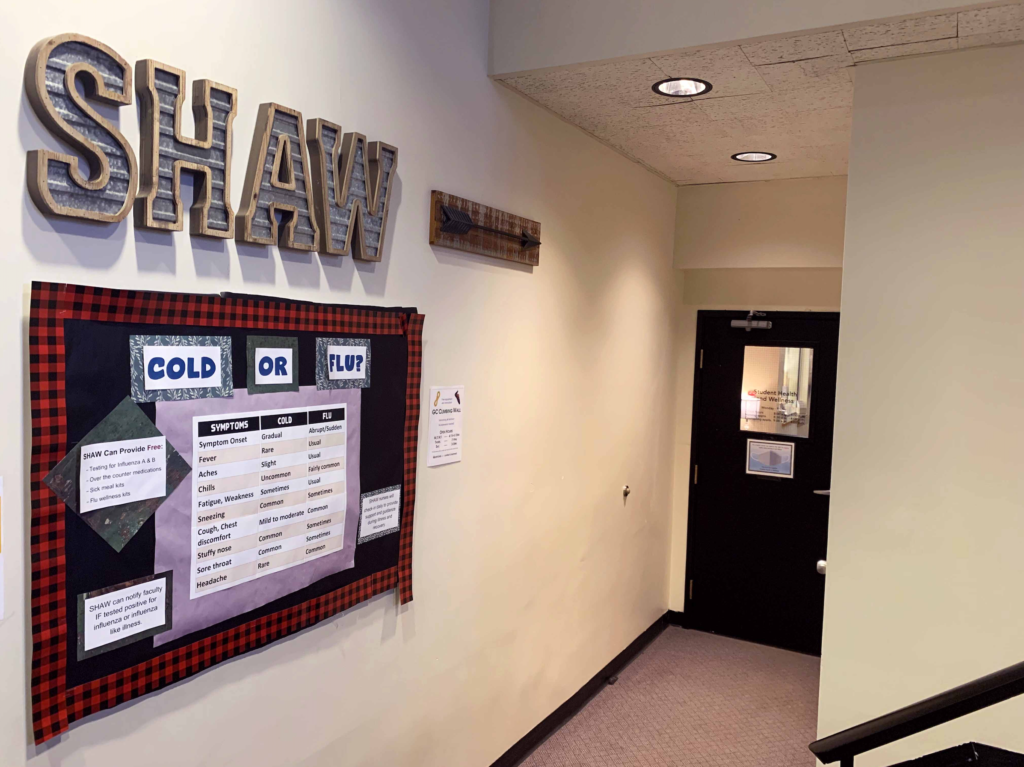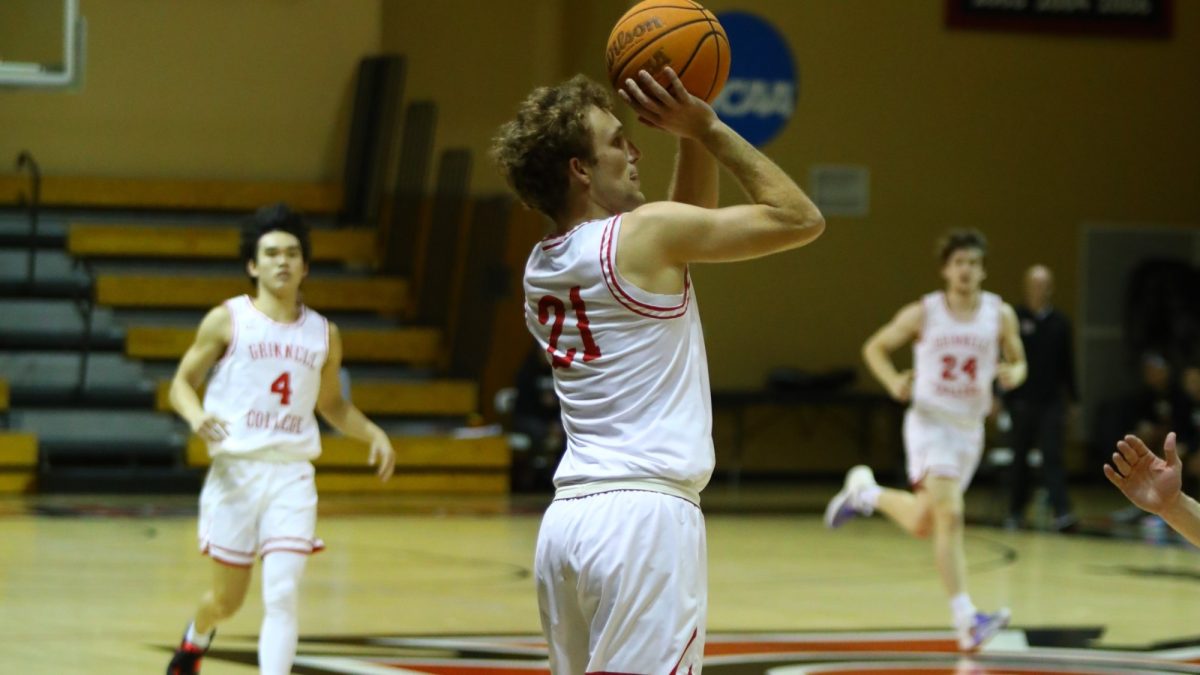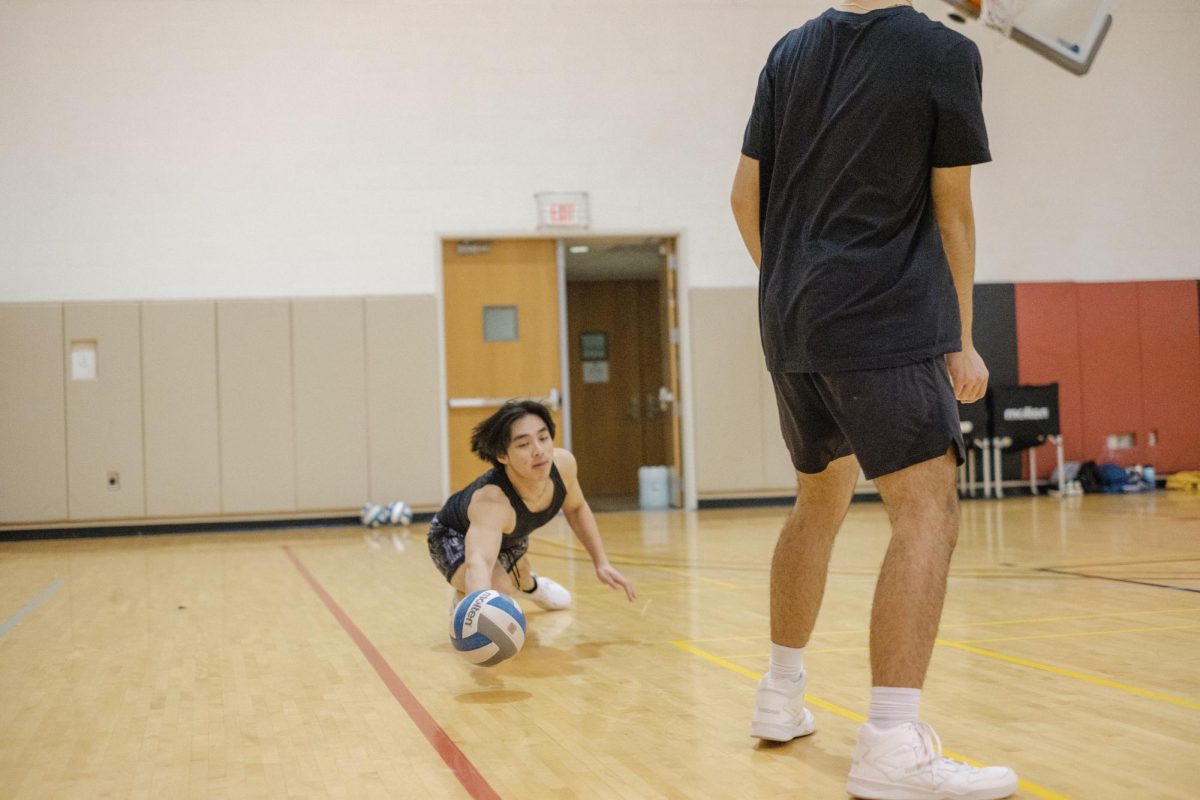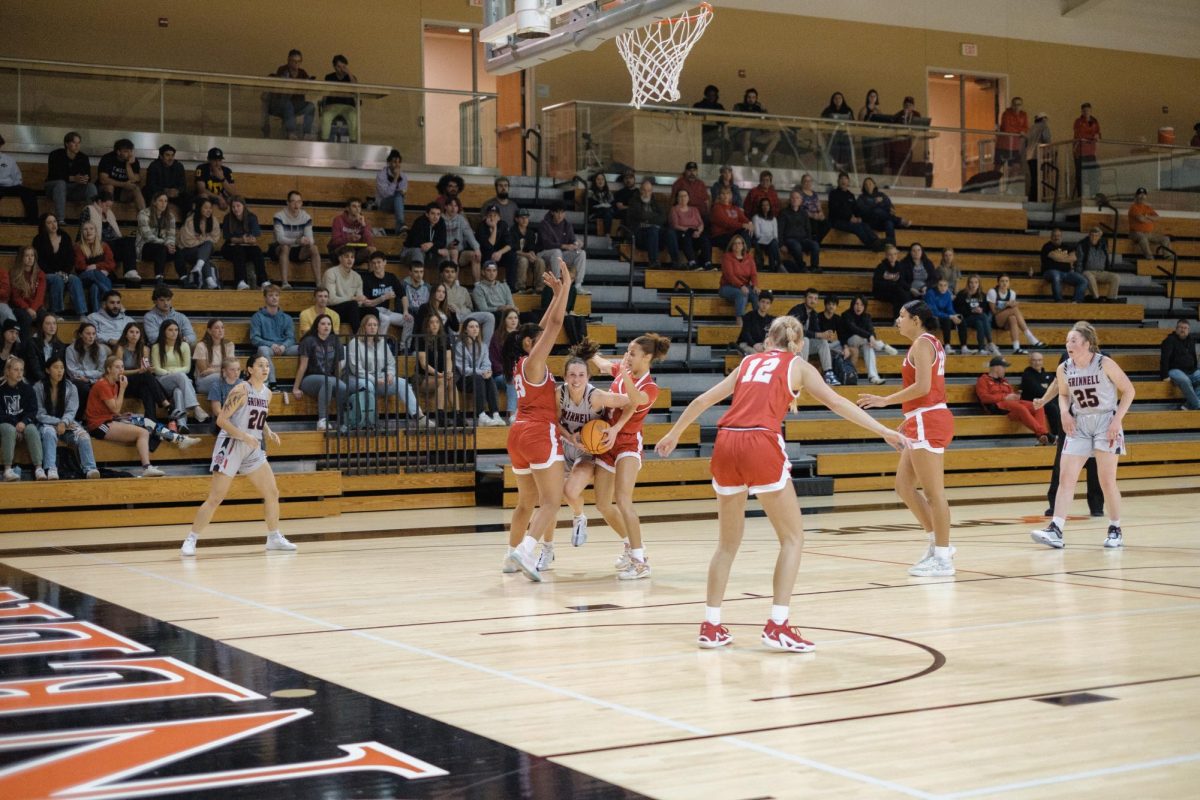The 2021-2022 academic year has seen the introduction of a variety of new mental health support services in both the campus and virtual space, through venues ranging from mobile apps to student workshops.
Grinnell’s office of Student Health and Wellness (SHAW) has historically offered individual appointments with its counseling staff, which includes two full time counselors, one part time counselor and five University of Iowa doctoral students. Although this model of care offered access for students who were able to schedule appointments, some found themselves in limbo. Students ended up on waiting lists for “weeks or sometimes months,” after SHAW’s counseling services quickly reached capacity, said Terry Mason, dean for health and wellness for the College.
Addressing this imbalance by “developing more resources for students and counselors” has been a priority for Mason throughout his time at Grinnell. Mason, who started working in the position in February of 2020, found that accessibility issues were accentuated when students were off campus for much of the 2020-2021 school year.
Due to state licensing requirements, SHAW’s counselors could only legally “work with students that were in Iowa,” said Mason. Thus, many students were excluded from care opportunities, an especially unfortunate situation given the toll that the pandemic has taken on the mental health of people around the world. It was under these circumstances that Mason began to explore telehealth options that could provide rapid support for all Grinnell students, regardless of time, location, or the availability of SHAW staff.
Mason’s research culminated in Grinnell’s partnership with The Virtual Care Group (VCG), a telehealth company that offers 24/7 access to medical and mental health services. From their VCG dashboards, students can connect with over 1,000 counselors via a phone or video call.
Since the launch of VCG services at Grinnell, many students have begun engaging with the platform. “It’s really taken off,” said Mason, who said that student use has increased by “24 percent, quarter over quarter,” meaning that students from Grinnell have increased their engagement with the service than any other college on the platform. Between July and December of 2021, just under one-third of students had created VCG accounts. Over that period, the platform had hosted 175 “behavioral visits,” the site’s term for counseling appointments, for members of the Grinnell community.
For students, telehealth counseling is a useful additional resource, although some noted that the structure of VCG services seemed to be oriented towards one-time visits, rather than recurring meetings. First years Pema Cunnyngham-Mansfield `25 and Maddie Hartog `25 both reached out to the VCG phone number with the hopes of setting up regular appointments but have received continual notices that a counselor pairing process is still underway weeks after beginning their inquiries.
“It seems great for a quick, one-time hotline,” said Hartog, “but it’s hard to use it to set-up consistent meetings.” After experiencing a similar delay, Cunnyngham-Mansfield ultimately opted to work with SHAW to get a referral for local care, which she said was “more efficient” than waiting for a response from VCG over the course of weeks.
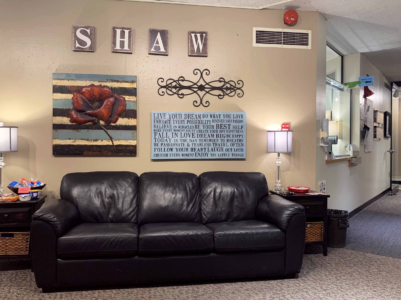
Complementing the expansive rollout of digital services, this semester will also see a resurgence of in-person opportunities, particularly in the form of group counseling. Available groups range from drop-in workshops that focus on mindfulness and emotional management to affinity groups for student athletes and international students. In these confidential sessions, “it’s not only counselors that facilitate,” said Mason. “You also have students helping each other.”
These sentiments were echoed by students who had learned about these support groups through extracurricular pursuits. Grace Kurtz `25 learned about the student-athlete group during ultimate frisbee winter training and anticipated that students with “similar backgrounds and with similar interests” could help create a “comfortable setting” for discussing issues that come up both on and off the field.
Teague Craig `09, the staff counselor who will facilitate the “Mindfully Understanding Yourself and Others” support group, as well as the “Managing Emotions and Relationships” skills workshop, also stressed the “sense of solidarity” that is core to such a group meeting. In an email, they wrote that “a major goal of offering these skills in this [workshop] structure is to offer tools that individuals can use on their own, whether they are interested in or currently pursuing counseling or not.”
This mix of programs and structures aligns with SHAW’s recent shift to a “spectrum of care” model. The spectrum includes resources that range from “self-directed” practices and programs that students can participate in independently — addressing their baseline health needs, online platforms, and workshops — to more intensive “professionally supported” options that require consultation with SHAW: from individual or group therapy sessions to off-campus professional resources and specialized care.
As the semester progresses, Mason is also looking forward to revitalizing SHAW’s student advisory council. Members of the council serve as liaisons between the student body and leaders at SHAW, providing valuable insight and feedback on student needs and current and future health and wellness initiatives.
Students interested in participating in mindfulness workshops or support groups can learn more about specific offerings and the programming schedule on the ‘Programs’ section of SHAW’s website. Skills workshops are available on a drop-in basis, while students interested in support groups will need to complete a 30-minute enrollment meeting before joining.
Prospective participants can do so by calling 641-269-3230. To set up a free VCG or Neolth account, students should use their Grinnell email credentials to access the full range of available services.




























































